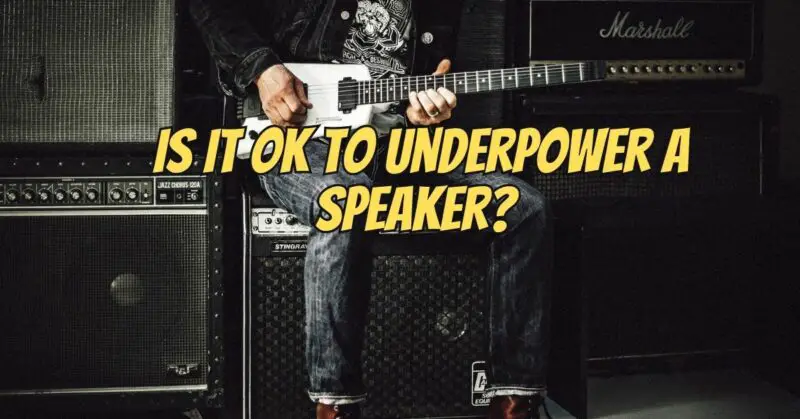It is generally safe to underpower a speaker, and in fact, it is often preferable to overpowering it. Here are some reasons why underpowering a speaker is typically considered safe:
- Reduced Risk of Speaker Damage: Underpowering a speaker means that the amplifier is delivering less power than the speaker’s maximum power handling capacity. This reduces the risk of overloading the speaker, overheating its voice coil, and causing damage.
- Extended Speaker Lifespan: Operating a speaker within or below its specified power handling capacity can help extend its lifespan. The speaker is subjected to less stress, and its components are less likely to wear out prematurely.
- Lower Risk of Clipping and Distortion: Underpowering a speaker is less likely to result in amplifier clipping and audio distortion. Clipping occurs when the amplifier cannot accurately reproduce the audio signal, leading to distorted sound. With lower-powered amplifiers, you are less likely to encounter clipping.
- Safer for the Amplifier: Running an amplifier at moderate power levels, even if it’s under its maximum output, is generally safer for the amplifier’s components and reduces the risk of overheating.
However, it’s important to strike a balance when underpowering a speaker. While it’s safe to provide slightly less power than the speaker’s maximum rating, you should avoid significant underpowering, which could result in an insufficient volume level for your needs.
Here are some guidelines for underpowering a speaker:
- Aim to use an amplifier that closely matches the speaker’s RMS (continuous) power handling capacity. Having some headroom (extra amplifier power) is acceptable and can help prevent distortion when the volume is turned up.
- Avoid using an amplifier with an output power significantly lower than the speaker’s RMS rating, as this can lead to a lack of volume and unsatisfactory sound quality.
- When selecting an amplifier, consider the speaker’s sensitivity rating (efficiency). Speakers with higher sensitivity ratings are more efficient at converting power into sound and may work well with lower-powered amplifiers.
- Pay attention to the type of music you intend to play and the size of the room or venue. For larger spaces or music genres that require higher volumes, you may need an amplifier that matches the speaker’s power handling capacity more closely.
In summary, underpowering a speaker within reasonable limits is safe and can help protect the speaker while still delivering satisfactory sound quality. It’s important to find a balance that meets your volume and sound quality requirements without subjecting the speaker to excessive stress.


